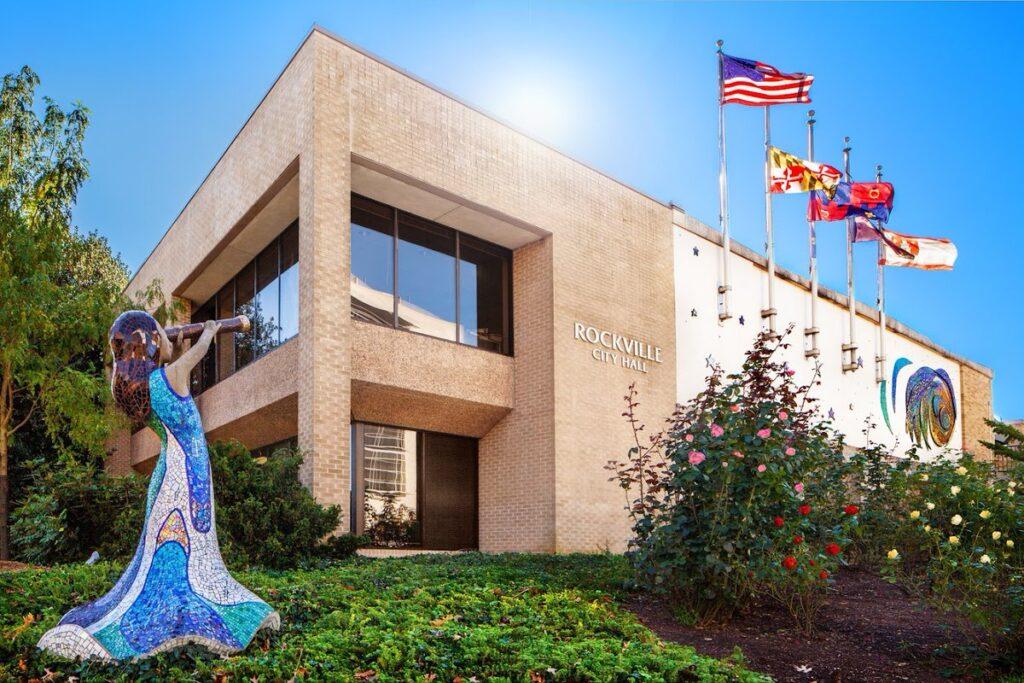The government of Rockville, Md., is discussing changing the voting age from 18 to 16 years old for local elections in an effort to increase voter turnout and youth participation in community affairs.
A public hearing on the issue is scheduled to take place Jan. 30 following the Rockville Charter Review Commission’s unanimous recommendation to lower the county’s voting age to 16 years old in municipal elections. Beyond lowering the minimum age to vote, the commission is also exploring other new electoral policies, such as creating representative districts and using a ranked choice voting system.
The commission said that because 16- and 17-year-olds are contributing community members who are directly affected by public policy, they deserve a political voice.
“People who are 16 and 17 years old are a part of our community, experience and receive Rockville government services, are impacted by policy in which they have no voice, are employed in Rockville and pay taxes, contribute to their households and to our community,” the commission’s 2022 report reads.
Sixteen-year-olds obtain similar scores to adults in measures of citizenship, including tolerance of others, civic knowledge and political interest, according to a January 2011 study conducted by professors at Rutgers University.
Based on this data, the commission said it believes 16-year-olds have the same cognitive ability and social maturity to participate in local elections as adults who are eligible to vote.
Georgetown University Votes, a student-run, nonpartisan organization at Georgetown that aims to increase voter participation, said that while it does not endorse a particular position on the issue, it praises the efforts being made to increase civic engagement.
“GU Votes commends Rockville, MD in brainstorming new and innovative ways of making voting easier– especially for young people,” a GU Votes spokesperson wrote to The Hoya. “GU Votes applauds these conversations: electoral reform and innovation are important topics and deserve a place in our national dialogue.”
Rockville’s commission used voting data from a 2016 case study by Vote16USA, a national campaign that supports efforts to extend voting rights to 16- and 17-year-olds at the local and state levels. The case study focuses on Takoma Park, Md., and Hyattsville, Md., which both lowered their voting ages to 16 years old by 2015, to show that those under 18 years old vote at higher rates than other demographics.
Forty-four percent of the registered 16- and 17-year-olds voted in Takoma Park in 2013, a turnout rate more than four times that of the general population, according to the study. This trend continued with 34% of the registered 16- and 17-year-olds voting in 2014 and 45% voting in 2015, compared to 28% and 21% by the general population. However, a relatively small percentage of 16- and 17-year-olds in these counties registered to vote — in Takoma Park, only about 36% of 16- and 17-year-olds were registered to vote in November 2013, compared to about 62% of the general Maryland population.
The commission claimed that voter participation will increase in the long run with a lower voting age because of the habitual nature of voting, as those who vote once are more likely to continue voting in subsequent elections.

In addition to a long-term increase in youth voter participation, the commission said that by allowing teenagers to vote, a trickle-up effect will occur where these new voters will encourage older generations to vote more.
“Lowering the voting age to 16 will not only help to increase voter turnout in the short term, but will establish new engaged voters that will increase voter turnout for the long term,” the commission’s 2022 report reads. “This provision also has proven to have a multiplying effect, as younger people who vote directly influence voter turnout of their parents/caretakers and older residents within their community.”
Looking ahead, GU Votes said it is optimistic about continuing the discourse around voter rights and methods to increase voter turnout.
“We hope these conversations, regardless of the particular policies they ultimately produce, produce a stronger, more perfect union in which individuals may more freely exercise their right to the ballot box,” the GU Votes spokesperson wrote.




















